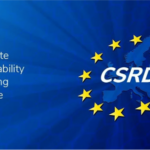The Committee of Permanent Representatives today endorsed an agreement between the Hellenic Presidency of the Council and European Parliament representatives on a draft directive for the disclosure of non-financial and diversity information by certain large companies.
New measures will require certain big EU companies to draw up, on a yearly basis, a statement relating to environmental, social and employee-related matters, respect for human rights, anti-corruption and bribery matters. The statement will have to include a description of the policies, outcomes and the risks related to those matters.
Where a company does not pursue policies in relation to these matters, it will have to explain why this is the case. The new measures are aimed at strengthening the companys transparency and accountability, while limiting any undue administrative burden, and ensuring a level playing field across the EU. They will be incorporated into the directive on the annual financial statements and reports of certain types of undertakings, which was adopted on 26 June 20132
The current president of the Competitiveness Council, the Greek minister for Development and Competitiveness Kostas Hatzidakis said that this decision provides the European Union with the first legislation on non-financial information reporting. Corporate Social Responsibility is an enabling tool for business productivity and contributes to a smart and sustainable growth. It is not only for shareholders but also for stakeholders and citizens that it adds value.
The agreement, which still has to be formalised by the European Parliament and the Council separately, includes the following main features:
Scope
The new provisions will be applicable to public interest entities over 500 employees. Public interest entities are companies, such as listed undertakings, banks, insurance companies or undertakings which are of significant public relevance because of the nature of their business, their size or their corporate status. Therefore small and medium-sized companies will be exempted from the new reporting obligation.
Some 6.000 public interest entities in the EU would fall under the scope of the directive.
Diversity policy
A description of the diversity policy applied for the undertakings administrative, management and supervisory bodies with regard to aspects such as age, gender, educational and professional background, will be added in the corporate governance statement (provided for in article 20 of directive 2013/34/EU).
Country by country reporting on taxes
On a report to be delivered by 21 July 2018 by the Commission, it will have to be considered the possibility of introducing an obligation requiring large undertakings to produce, on an annual basis, a country-by-country report for each member state and third country in which they operate, containing information on profits made, taxes paid on profits and public subsidies received. The report will take into account developments to increase transparency in financial reporting carried out at international level.
Country-by-country reporting in the extractives sector has already been legislated by the EU under directive 2013/34/EU.
Background
The necessity to improve undertakings disclosure of social and environmental information is a part of the EU strategy to promote corporate social responsibility adopted in October 20113 , which acknowledged the importance of businesses divulging certain information with a view to identifying risks and increasing investor and consumer trust. Non-financial reporting is vital for managing change towards a sustainable global economy by combining long-term profitability with social justice and environmental protection. It also helps monitoring undertakings performance and their impact on society.


